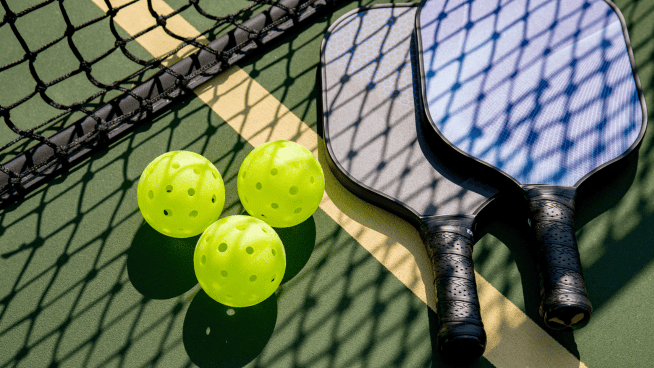Miguel Cabrera’s Crowning Achievement
It wasn’t supposed to be his year.
The 2012 Major League Baseball season was presumptively reserved for rookie phenoms who soar through the air to make home-run-robbing catches and sprint full-speed around the bases with unbridled enthusiasm after going deep.
The 2012 season was supposed to be remembered for brilliant pitching performances, including a record seven no-hitters and three perfect games.
No, it wasn’t supposed to be his year. But when the regular season came to a close, 29-year-old Miguel Cabrera sat atop the American League charts with a .330 batting average, 44 home runs and 139 runs batted in—having earned, in relatively undramatic fashion, baseball’s first Triple Crown in 45 years.
Before Cabrera officially captured the crown in the regular season finale on Oct. 3, Detroit Tigers ace Justin Verlander said, “The entire baseball world should be here right now.” But for the most part, the baseball world was absent during Cabrera’s Triple Crown chase. No television cameras hovered around the Venezuelan slugger; no 24-hour news tickers tracked his every at-bat. The divisional playoff race and the Stephen Strasburg post-season shutdown show commanded more media attention than Cabrera’s pursuit of baseball immortality.
“I think he’s been relatively under the radar for what he’s doing,” Verlander said. “I haven’t seen that much attention on him, not like it should be.”
Cabrera wouldn’t have it any other way. He says, “I just tried to help my team win games by focusing on what I can do on the field, not trying to do too much, and not worrying about personal numbers. Staying focused on winning games helped me win the Triple Crown.”
In 2012, Cabrera posted personal bests in home runs and RBIs, but the season was hardly an aberration. In fact, Cabrera has been one of the most complete and consistent big league hitters over the past decade.
He hits for average and power, draws walks and sprays hits all over the field. Cabrera is a four-time Silver Slugger; and he led the American League in at least one Triple Crown category in three of the four seasons prior to 2012—home runs (37) in 2008, RBIs (126, tops among all MLB players) in 2010, and batting average (.344) in 2011.
But it didn’t start out that way. Baseball’s newly minted Triple Crown winner laughs when asked about his first game in the big leagues. Of his 2003 mid-season debut with the Florida Marlins, he says, “I was so nervous, during my first four at-bats I was 0-for-4. Finally, in the last at-bat, I hit a walk-off home run. It was an unbelievable feeling and something that I’ll never forget.”
Cabrera hit safely in five of his first six games with the Marlins, but then he struggled through a four-game stretch in which he went 0-for-15. At the age of 20, he was in jeopardy of being sent back down to the minors after his first 10 big league games.
“I knew I had to play better and play harder,” Cabrera says.
So that’s what he did.
On July 1, in his 11th big league game, Cabrera snapped the slump with a breakout performance against the Atlanta Braves, going 4 for 6 with two home runs, two doubles and four runs batted in.
“That experience helped me turn my career around,” he says. “Now I play every game like it’s my last.”
Much has changed for Cabrera since the 2003 season, which ended with a World Series championship after the rookie helped the Marlins defeat the New York Yankees in six games.
Cabrera came into the big leagues as a left fielder, and over the course of his first three seasons, he played both left and right field. In 2006, he switched to third base and then moved again, to first base, after being traded to the Detroit Tigers following the 2007 season.
During the off-season in those early years, Cabrera returned home to play in the Venezuelan winter leagues. Playing year-round helped him accelerate his skill development. He says, “I was focused on baseball only. That helped me get more at-bats and learn more about the game.”
But although it helped his understanding of the game, playing constantly might have hindered his ability to perform. By 2007, his final season with the Marlins, the 6’2”, 185-pound rookie was now tipping the scales at over 250 pounds.
So before reporting for spring training with his new team, the Tigers, Cabrera dedicated himself to a rigorous off-season training regimen. “That helped me get my schedule right and get in the best shape I could before spring training,” he says.
The off-season work paid off instantly. In his first season with the Tigers, Cabrera led the American League with 37 home runs and drove in a then career-high 127 RBIs. His enhanced fitness also helped Cabrera become a mainstay in the Detroit lineup. During four of his first five seasons with the Tigers, he played in at least 160 games.
Through it all—position changes, trades and concerns about his weight—no one ever heard any grumbling from Cabrera. He says, “You have to go out there and bring your best personality to the field. If you’re able to do that, you’re able to handle any situation. You’re able to make the right decisions to make plays on the field, you’re able to be patient at the plate and put the best swing on the pitches you want to hit.”
When fellow thumper Prince Fielder signed with the Tigers prior to the start of the 2012 season, Cabrera didn’t get upset or act threatened. Instead, he was the first person to greet Fielder at the team’s spring training facility in Lakeland, Fla. He even volunteered to move from first base back to third to accommodate Fielder.
“To be a great team,” Cabrera says, “you have to treat everyone like family. If you’re able to do that and have respect for your teammates and your coaches, you’re going to be part of something big.”
Together, Cabrera and Fielder led the Tigers to the team’s first World Series appearance since 2006. Along the way, Cabrera turned in one of the greatest single-season offensive performances in the history of the game, earning the American League MVP award to go with his historic Triple Crown.
Still, Cabrera isn’t satisfied. “Records are meant to be broken,” he says, “but winning championships is how I want my career to be remembered.”
RECOMMENDED FOR YOU
Miguel Cabrera’s Crowning Achievement
It wasn’t supposed to be his year.
The 2012 Major League Baseball season was presumptively reserved for rookie phenoms who soar through the air to make home-run-robbing catches and sprint full-speed around the bases with unbridled enthusiasm after going deep.
The 2012 season was supposed to be remembered for brilliant pitching performances, including a record seven no-hitters and three perfect games.
No, it wasn’t supposed to be his year. But when the regular season came to a close, 29-year-old Miguel Cabrera sat atop the American League charts with a .330 batting average, 44 home runs and 139 runs batted in—having earned, in relatively undramatic fashion, baseball’s first Triple Crown in 45 years.
Before Cabrera officially captured the crown in the regular season finale on Oct. 3, Detroit Tigers ace Justin Verlander said, “The entire baseball world should be here right now.” But for the most part, the baseball world was absent during Cabrera’s Triple Crown chase. No television cameras hovered around the Venezuelan slugger; no 24-hour news tickers tracked his every at-bat. The divisional playoff race and the Stephen Strasburg post-season shutdown show commanded more media attention than Cabrera’s pursuit of baseball immortality.
“I think he’s been relatively under the radar for what he’s doing,” Verlander said. “I haven’t seen that much attention on him, not like it should be.”
Cabrera wouldn’t have it any other way. He says, “I just tried to help my team win games by focusing on what I can do on the field, not trying to do too much, and not worrying about personal numbers. Staying focused on winning games helped me win the Triple Crown.”
In 2012, Cabrera posted personal bests in home runs and RBIs, but the season was hardly an aberration. In fact, Cabrera has been one of the most complete and consistent big league hitters over the past decade.
He hits for average and power, draws walks and sprays hits all over the field. Cabrera is a four-time Silver Slugger; and he led the American League in at least one Triple Crown category in three of the four seasons prior to 2012—home runs (37) in 2008, RBIs (126, tops among all MLB players) in 2010, and batting average (.344) in 2011.
But it didn’t start out that way. Baseball’s newly minted Triple Crown winner laughs when asked about his first game in the big leagues. Of his 2003 mid-season debut with the Florida Marlins, he says, “I was so nervous, during my first four at-bats I was 0-for-4. Finally, in the last at-bat, I hit a walk-off home run. It was an unbelievable feeling and something that I’ll never forget.”
Cabrera hit safely in five of his first six games with the Marlins, but then he struggled through a four-game stretch in which he went 0-for-15. At the age of 20, he was in jeopardy of being sent back down to the minors after his first 10 big league games.
“I knew I had to play better and play harder,” Cabrera says.
So that’s what he did.
On July 1, in his 11th big league game, Cabrera snapped the slump with a breakout performance against the Atlanta Braves, going 4 for 6 with two home runs, two doubles and four runs batted in.
“That experience helped me turn my career around,” he says. “Now I play every game like it’s my last.”
Much has changed for Cabrera since the 2003 season, which ended with a World Series championship after the rookie helped the Marlins defeat the New York Yankees in six games.
Cabrera came into the big leagues as a left fielder, and over the course of his first three seasons, he played both left and right field. In 2006, he switched to third base and then moved again, to first base, after being traded to the Detroit Tigers following the 2007 season.
During the off-season in those early years, Cabrera returned home to play in the Venezuelan winter leagues. Playing year-round helped him accelerate his skill development. He says, “I was focused on baseball only. That helped me get more at-bats and learn more about the game.”
But although it helped his understanding of the game, playing constantly might have hindered his ability to perform. By 2007, his final season with the Marlins, the 6’2”, 185-pound rookie was now tipping the scales at over 250 pounds.
So before reporting for spring training with his new team, the Tigers, Cabrera dedicated himself to a rigorous off-season training regimen. “That helped me get my schedule right and get in the best shape I could before spring training,” he says.
The off-season work paid off instantly. In his first season with the Tigers, Cabrera led the American League with 37 home runs and drove in a then career-high 127 RBIs. His enhanced fitness also helped Cabrera become a mainstay in the Detroit lineup. During four of his first five seasons with the Tigers, he played in at least 160 games.
Through it all—position changes, trades and concerns about his weight—no one ever heard any grumbling from Cabrera. He says, “You have to go out there and bring your best personality to the field. If you’re able to do that, you’re able to handle any situation. You’re able to make the right decisions to make plays on the field, you’re able to be patient at the plate and put the best swing on the pitches you want to hit.”
When fellow thumper Prince Fielder signed with the Tigers prior to the start of the 2012 season, Cabrera didn’t get upset or act threatened. Instead, he was the first person to greet Fielder at the team’s spring training facility in Lakeland, Fla. He even volunteered to move from first base back to third to accommodate Fielder.
“To be a great team,” Cabrera says, “you have to treat everyone like family. If you’re able to do that and have respect for your teammates and your coaches, you’re going to be part of something big.”
Together, Cabrera and Fielder led the Tigers to the team’s first World Series appearance since 2006. Along the way, Cabrera turned in one of the greatest single-season offensive performances in the history of the game, earning the American League MVP award to go with his historic Triple Crown.
Still, Cabrera isn’t satisfied. “Records are meant to be broken,” he says, “but winning championships is how I want my career to be remembered.”













